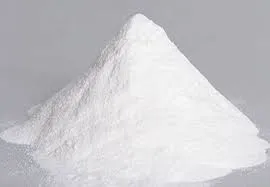
Oct . 31, 2024 22:59 Back to list
Enhancing Mortar Performance with Advanced Bonding Additives for Superior Durability and Strength
Understanding Mortar Bonding Additives Enhancing Performance and Durability
In the construction industry, the integrity and longevity of mortar plays a crucial role in ensuring the stability and strength of masonry structures. Mortar, composed of sand, cement, and water, serves as the vital link between bricks, stones, and tiles. However, to achieve optimal performance and improve the bonding capacity of mortar, many manufacturers and builders are turning to mortar bonding additives. These specialized formulations are designed to enhance the properties of the mortar, providing solutions to common challenges faced in masonry work.
What are Mortar Bonding Additives?
Mortar bonding additives are chemical compounds specifically engineered to improve the adhesion and overall performance of mortar. They can be in liquid or powder form and are typically mixed with the mortar ingredients before application. The primary function of these additives is to increase the bonding strength between the mortar and the materials it adheres to, reducing the risk of failure due to environmental factors or load stresses.
Benefits of Using Mortar Bonding Additives
1. Enhanced Adhesion One of the most significant advantages of mortar bonding additives is their ability to improve adhesion. By modifying the surface tension and chemical interactions between the mortar and substrate, these additives ensure a stronger bond, which is particularly beneficial in challenging environments.
2. Improved Flexibility and Workability Many additives enhance the flexibility and workability of mortar. This is essential in areas with temperature fluctuations or in seismic zones where materials may expand and contract. Flexible mortar can absorb stress without cracking, leading to longer-lasting structures.
3. Water Resistance Certain bonding additives can provide water-resistant properties to mortar, which is crucial in preventing moisture infiltration. This feature not only helps preserve the aesthetic qualities of masonry but also protects underlying structures from damage due to mold or corrosion.
mortar bonding additive

4. Resistance to Chemicals In industrial applications, mortar may be exposed to various chemicals. Bonding additives can help formulate mortars that are resistant to chemical attacks, thereby extending the life of the structure and reducing maintenance costs.
5. Faster Setting Times Some additives accelerate the curing process of mortar, allowing for quicker construction timelines. This can be advantageous in projects where time is of the essence, enabling tradespeople to work more efficiently.
Types of Mortar Bonding Additives
There are several types of mortar bonding additives available on the market, including
- Polymer-based Additives These water-based emulsions increase adhesion, flexibility, and water resistance. - Latex Additives Commonly used in tile setting and repair work, providing enhanced bonding and flexibility. - Chemical Additives Such as accelerators and retarders that modify the setting time of mortar.
Conclusion
Incorporating mortar bonding additives into masonry work is a strategic decision that can significantly improve the performance and durability of structures. As the construction industry continues to evolve, leveraging these advanced materials is not just advantageous but essential for ensuring long-lasting, safe, and aesthetically pleasing buildings. Whether working on residential homes, commercial buildings, or intricate architectural projects, understanding and utilizing mortar bonding additives can lead to exceptional outcomes in masonry construction.
-
Versatile Hpmc Uses in Different Industries
NewsJun.19,2025
-
Redispersible Powder's Role in Enhancing Durability of Construction Products
NewsJun.19,2025
-
Hydroxyethyl Cellulose Applications Driving Green Industrial Processes
NewsJun.19,2025
-
Exploring Different Redispersible Polymer Powder
NewsJun.19,2025
-
Choosing the Right Mortar Bonding Agent
NewsJun.19,2025
-
Applications and Significance of China Hpmc in Modern Industries
NewsJun.19,2025







